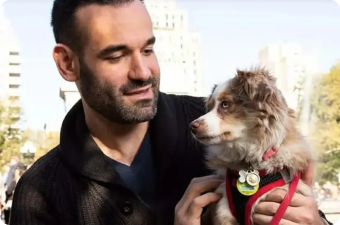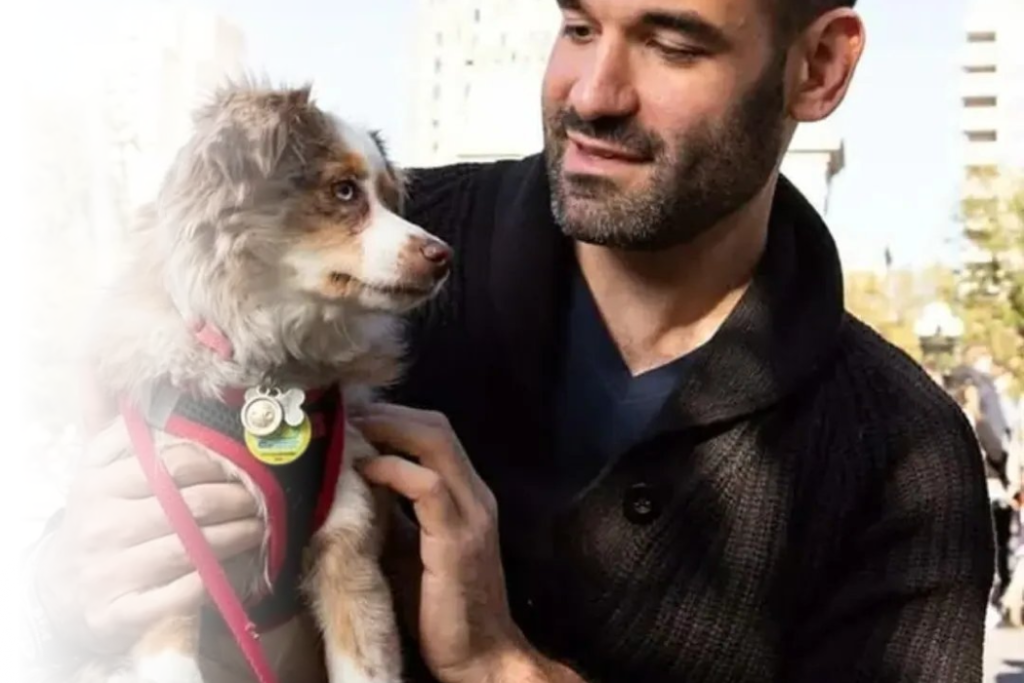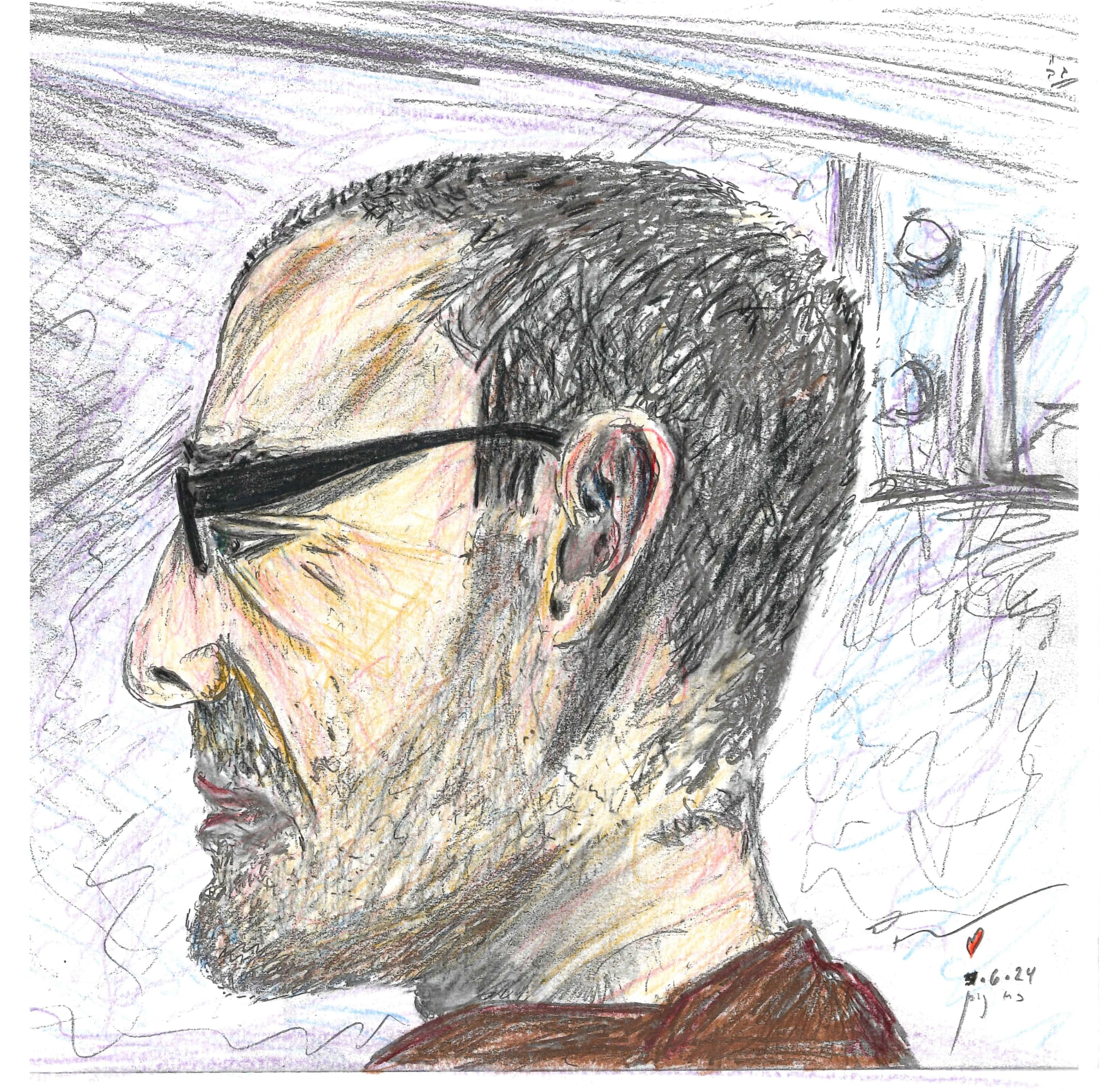“What were your parents like?” I ask Doc.
Asking an 85-year-old man about his parents starts your brain doing math. They’ve have been born over 105 years ago…
“My mom, and I know everybody says this, but my mom really was the hardest-working, sweetest woman that ever walked God’s Earth. Raised four boys without a husband for years.”
“What happened to her husband?”
“He was the meanest, cruelest sonofabich,” Doc offers up, not exactly answering.
“Divorce?”
“No. He was the absolute worst human being on the planet. Until a born again preacher came to town, and my father found Jesus and was born again, and brought his four sons and his wife into,”
“Then he was nice? Then what happened?”
“He was nice. Then he got sick and died.”
Doc Prater has a staccato way of delivering a punch a little quick, with a bit of a bite to it.
“And my mother,” he continues, “She didn’t put her hand out. There were no food stamps then, she worked hard and sent us all to school, never begged, never went on the dole.”
“What did she do for a living?”
“She boiled and parched peanuts, and got a route selling them. She’d go out three days a week, and knew exactly how many peanuts she needed to give these people to sell them. One of us would take off school that day to help her. 90 cents for a dozen peanuts. You can’t get that today.”
I think you can get a lot more peanuts for a dollar now, and adjusting for inflation over 75 years… but I don’t interject. Perhaps Doc has already adjusted for inflation.
“Were they peeled or in the shells?”
“In the shells.”
“Ah, back in the olden days you had to peel your own peanuts.”
“Yeah.”
Doc is the second-youngest of four boys. His younger brother’s son, Matt, is a star NFL Kicker. Doc himself played for Winnipeg’s team. He was recruited by the NFL but, “I didn’t think it right to earn my living on Sunday.”
He tells me how he used his salary from playing professional ball, “It wasn’t as good as it is today. We didn’t have TV, but it was still good,” to pay for his mother’s home, and to fix it so she could remain independent a bit longer as old age and Alzheimers took hold.
Doc has his moments of kindness, and there’s a sense you’re talking to a little boy desperate for someone to like him. We all have that part inside us, and at times it’s louder and more intense than others, but it’s sweet and sad to see it coming from an 85-year-old man 16 years into a 30 year Federal prison sentence.
Doc will randomly offer you things, “Would you like any of the food I have, that you might not have?” It’s an awkward phrasing of a man grasping at being able to win your love. “Graham crackers maybe?” Doc loves Graham crackers. I imagine the little boy inside him really does, too.
“Do you need some Scotch tape? I’ve got two rolls!”
“I’ve got a copy of Black’s Law Dictionary if you need.”
“Sugar?”
“Yellow highlighter!?”
Doc is skinny, one of those 85-year old guys that bucks the low-carb diet data with his graham cracker and PB & J sandwhich diet. He works out every day, crunches on his bed, lunges by the computers, and frequently in the yard. He gets into a zone where he’s the only one there no matter the crowd.
He was married once, at a late age, and had a student who fell in love with him at another time — a student of his “Slimersize” fitness class he taught at a college.
Back then, he says, you wouldn’t get in trouble for dating a student, even if she were 17. He was about 40… more than half a lifetime ago. She fell in love with him and wanted to marry him while he was in prison, but he woke up and “realized if I didn’t hear from her tomorrow I wouldn’t miss her, so I wrote her a Dear John letter.”
Doc speaks more fondly of his big great dane, who’d ride around with him in his yellow Corvette. The dog’s name was “Dice, because he was black and white,” Doc says with a boyish smile. The little boy loves big dogs, graham crackers, and fast yellow cars.
Doc’s late and short-lived marriage and his feeling nothing at missing out on a woman devoted to him are interesting when juxtaposed against his rabit anti-Gay rhetoric. “About 50% of this prison are going to Hell because they’re effeminates.” Doc explains this is the old King James translation for gays.
I don’t think Doc is a closeted gay man so much as he’s declaring his allegiance with a brutal father who taught his boys to love Jesus, but not many others.
Doc loves his mother. “I pray every day to Jesus that I’ll get to hug him and wash his feet, and I’m sure my mother is one of the first people I’ll hug in heaven.”
Doc’s not always easy to deal with — the black guys and gays here do about as well with him as you’d imagine any fundamentalist Christian 85-year old Southerner would get along with them — but there’s something endearing and pure in his zeal. Something childlike.
He keeps trying to convert me. He’ll start singing about Jesus, or telling me about Corinthians this sentence or that. He tells me I’m going to Hell in the most gentle of ways. I tell him we don’t believe in Hell.
“Doc, why be cruel to the gay guys? Doesn’t it say, ‘Judge not lest ye be judged?’”
“Everyone loves to quote that at me.”
“Well, maybe they’ve got a point. If everyone tells a guy to cut out the donuts, maybe he’s got to lose some weight.”
“Don’t take away my donuts!” Rubinstein jokes as he walks by — there are no private conversations in the Glass House.
“You’re not fat! You’re big boned!” I joke back. Rubinstein isn’t fat. The dude benches about 325 lbs at the yard, and he’s there daily. He’s not skinny, but not out of shape.
trash bag.
I close my eyes and laugh silently but uncontrollably. “And good for him!”
Doc comes back, “But Doc, what if, as the data says, about 25 to 35% of gay men say they were abused as children? Wouldn’t heeping more abuse on them just be adding cruelty?”
“Who’s abusing them?”
“Well, telling them they’re going to hell, calling them names…”
“You’re telling me people become gay because they weren’t raised right?!”
“They could have been raised right, but someone else abused them, a teacher, an uncle. The church had a lot of guys abusing kids.”
I realized just them I opened the pandoras box on Catholics. Doc informs me many of them are, “Going to Hell, too.”
Doc twitches at the idea that men could be born gay, or that it could be a trauma response for many (not a politically correct thing to say, but the data on gays and lesbians who report having been abused as children is staggering).
Doc just starts back, “The Bible says…”
Doc, however, is still seeking his salvation on Earth. He sends hand-written letters seeking pardons, a few years ago to Trump, now to Biden. He pontificates on the law, and argues with the courts. (I confess I’ve tried this failed tactic.) His typography is exceptional, considering it’s written with rollerpoint pen.
Doc actually has some art skills — though he doesn’t use them other than to show you he knows how to do it. I encourage him to teach others, he pauses in thought. Maybe.
“Doc, you’re 85-years old, 16 years in, and for a non-violent offense. Why not just ask for a Commutation? What does it matter if you’ve got a conviction or not?”
But I know. Being accused of a crime of-which you think you’re innocent is something that hits the ego. You want your name cleared, you want a future free of it.
I don’t know that Doc is innocent, and I don’t know much about the allegations against him. In prison, stories about the actual cases are short and often skewed or outright lies. One man, Wally (name changed), told his fellow Jews he was in for bank fraud, but was in for downloading child porn. The guys actually in for fraud figured the math didn’t add up and had their families look up his case — a strange “takes one to know one”. They were livid. In Prison, and they met at “The Building”, FDC Miami, a SuperMax, befriending a “ChoMo” can get you beaten. Wally became depressed, feared violence, and contemplated suicide. By chance, a fellow inmate shared the same Rabbi, who asked him to ensure guys were kind. They were. Wally is part of the main cliche, and makes incredible tuna salads for Shabbat Kiddush. I don’t know what Wally did, I only know him to be an exceptionally kind and helpful person.
(In fact, I’ve found all the guys accused of “ChoMo” offenses to be nice. All of them, without exception, were abused as children in some way — all of them have bottled up rage, pent up under the exceptional softness. They aren’t a threat to an adult, their inner children learned to rage against innocent children as it was done to them. I believe we will one day “cure” this, as we learn to understand and heal trauma with psychadelic medicine and therapies like IFS — but for now, I believe strongly that these men, as horrifying as the acts they may have committed outside may be, are themselves abused children and do not deserve futher abuse, just to be kept from kids so the cycle doesn’t continue.)
The “easy” lesson in Prison is don’t trust anyone’s story as to why they’re here, but the bigger, more-difficult lesson is that our past doesn’t matter. The day the gate slams behing you, you begin life anew.
That’s perhaps Prison’s greatest lesson, straight from the Torah. At any moment, you can be born anew. The damage may linger, but everything can be healed.
Doc, at 85-years old, is at once an old man and a little boy. Surely he’s many more facets and parts than I can know or explain. We are all a fractal of infinate, ever-adapting parts, moments in time formed into dynamic personalities with the capacity to be hurt, heal, grow.
Sometimes those parts take over. Doc’s parts that care about being right, vindication, judgment, scream loud.
Just like his dad used-to.
The parts that crave kindness, compassion, friendship, and love still appear traumatized by the memory of his beligerent pre-born-again father. They peek out timidly, seeking a safe space to be friendly. They don’t quite have a model for how it works.
At 85-years-old, however, Doc is learning. For an old guy, he’s willing to discuss, willing to consider. He’s not beligerent in his preaching, but answers questions. Usually, I stump him. Born again preaching has nothing on 20 years of Yeshiva education. He still tries, politely.
He quotes a line or mentions an idea in the bible. “Doc, I read it in the actual Hebrew, for the synagogue. Here…”, and I open the ArtScroll Chumash and show him the English, next to the Hebrew. He actually pauses to consider.
Doc’s image of our Heavenly Father appears to mirror much of his Earthly one, as it does for many. His is an angry, judgy, whip-cracking, Hell-sending, Gay-hating, Black-demeaning, I’ve-heard-good-things-about-Jews-but-
they’re-going-to-Hell-too-sorry-buddy, god.
“I have to love his soul, but not the sinner,” is a line Doc uses frequently. He’s full of such contradictions.
Doc talks about helping his mother, but says, “Our family doesn’t take charity,” when it’s about him accepting help.
“But Doc, you helped your mother. She took help. Now it’s your time to take help.”
Doc’s famous NFL nephew, Matt Prater, offered to help with legal fees to get him released, but Doc refused. “I pray to G-d and trust he’ll help me.”
“Doc, you know the parable of man on the deserted Island praying to G-d? He waves away the boat, the helicopter, the, IDK, the paddleboarder… and then he dies and asks G-d ‘Where were you?’”
“Yeah.”
“Maybe Matt is your boat.” Doc’s face shows he’s considering it.
I hope he takes the help. 85 is a terrible age to be in prison, and he’s likely no threat to anyone but himself.
One morning, Doc tells me gleefully, sure he’s got the sale locked-in, “The New Testament says you need to obey two commandments to get into heaven. ‘Love G-d with all your heart and soul’, and ‘Love your fellow man as you love yourself.’”
“Doc, that’s in the Torah. We read it every day,” I show him. His face shows consideration.
Doc struggles most with the “as yourself”, part. We all do.
Powering this 85-year old fire-and-brimstone messenger of G-d is a little boy who still struggles to feel lovable.
Doc’s not going to convert me, and I’m won’t change him, but while I’m here, maybe I can help that little boy realize G-d loves him and he can love himself just the same.
Actually, that’s the biggest lesson from prison. Hillel’s, “Torah on one foot”. Love your neighbor *as-if they’re your too.
With love, Ari =====================
Group message. Draft 1.0. You may share this letter.


